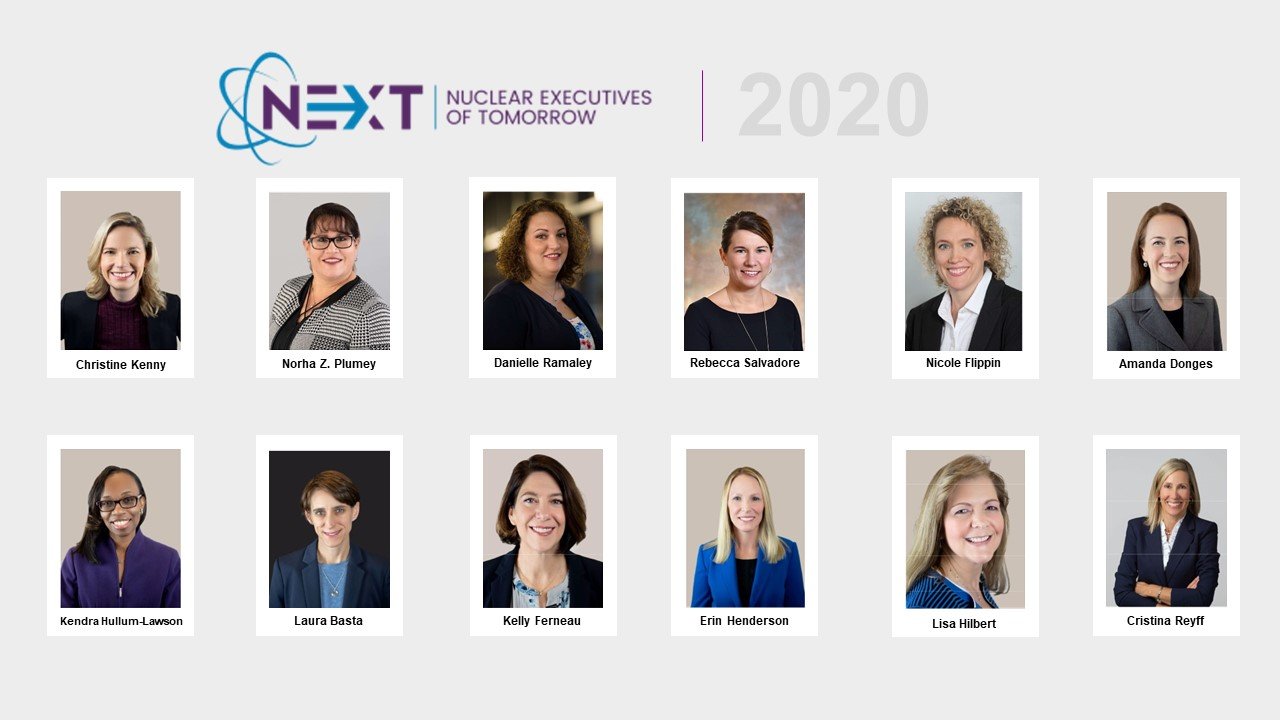U.S. Women in Nuclear Take the Rocket Science out of Workforce Development
The 2022 cohort of the Nuclear Executives of Tomorrow (NEXT) program.
We hear so much about “building the talent pipeline” — cultivating and maintaining the next generation of workers, especially in the trades and construction. Talent — especially female — has become The Holy Grail.
But U.S. Women in Nuclear (WIN) has taken the rocket science out of this. Board members, company execs, industry workforce development professionals — fret no more. The Nuclear Executives of Tomorrow (NEXT) program is the template you need to diversify and sustain, your industry’s workforce.
Designed by women and for women, U.S. WIN’s NEXT program was created in conjunction with the Nuclear Energy Institute and nuclear executives across industry. The collaborators identified a need for executive-level leadership development focused on preparing the best and brightest individuals for strategic leadership within their organizations and the industry. And so, they took action. Real action.
NEXT supports highly capable female leaders primed for executive-level advancement. It provides challenging experiential opportunities and creates a tight-knit professional network focused on helping each other succeed. After 12 months, expected participant outcomes include developed executive leadership competencies, broadened strategic perspective, a well-established professional network, and an active industry-wide role in supporting a future that is diverse and sustainable.
Customized for each cohort, the program is conducted in three segments: Me/My VOICE/My Tribe. The participants determine the syllabus/topics/challenges they want to focus on within the structure of the program. Typical challenges women in the nuclear industry face include work-life balance (nuclear is 24/7), relationships with male counterparts, managing the delicate nuances of the nuclear business, and DE&I.
“I am proud as the past chair of U.S. WIN and one of the founders and creators of this program,” said Jhansi Kandasamy, Net Zero Program Director at Idaho National Laboratory. “We have achieved the goal of offering a coveted program that ensures success in closing the gender gap in the executive ranks. The program has been hugely successful, with active engagement and participation from the CEOs and CNOs of the industry.”
“We wanted the program to be special and unique,” Jhansi continued. “Entry into the program is a very selective process. The candidates are nominated by their CEOs/CNOs or company executives. The oversight committee conducts a review and approval to ensure the candidates are in gender-underrepresented areas/disciplines.”
So far, NEXT has graduated two cohorts, each with 12 to 14 members. More than 60% of each class has received promotions or expanded responsibilities while in the program or within 12 months of graduating.
That’s results.
"I’m so grateful to those that have helped me learn on my journey. It’s opened my mind [to] different perspectives that have made me a better person and a stronger leader,” said NEXT graduate Rebecca Salvadore, training director at Exelon Nuclear. “I feel energized even more than before and continue to raise my voice and help others in leading our industry toward the future.”
Lisa Hilbert, plant manager at North America Power Station, Dominion Energy, added: "I’ve learned that I’m inspiring more females to be leaders not just by being at the table but by using my voice while at the table. And that our differences can be our strength."




